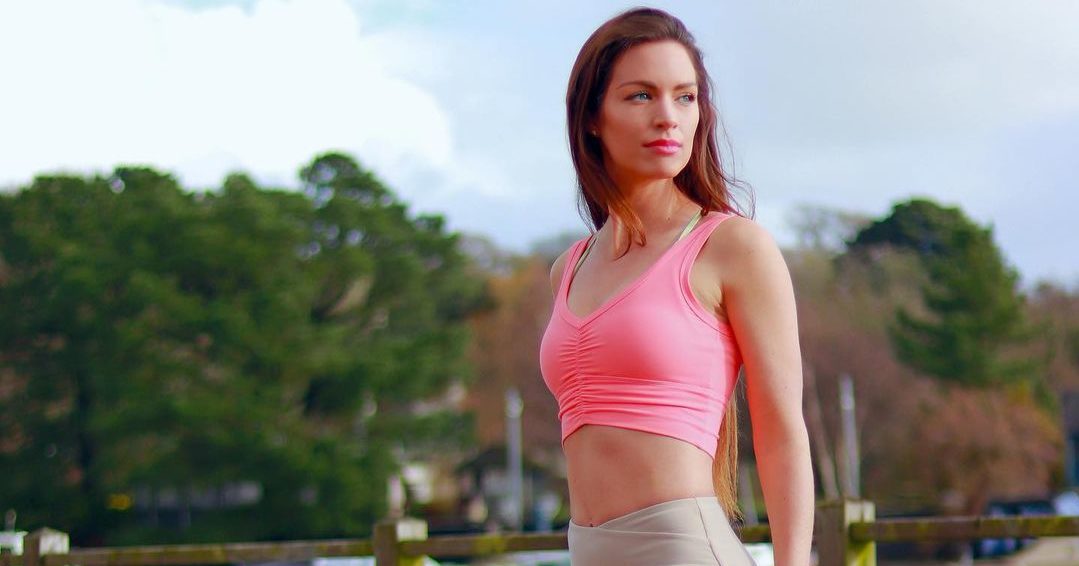Creator Nikki Grace hasn’t let type 1 diabetes stand in the way of her fitness goals. The wellbeing advocate reveals how she deals with ‘unnatural’ standards on social media, mental health challenges, and why she prefers the term creator over influencer.
Want to get paid for your content? Sign up to our platform and you’ll be matched with relevant brands.
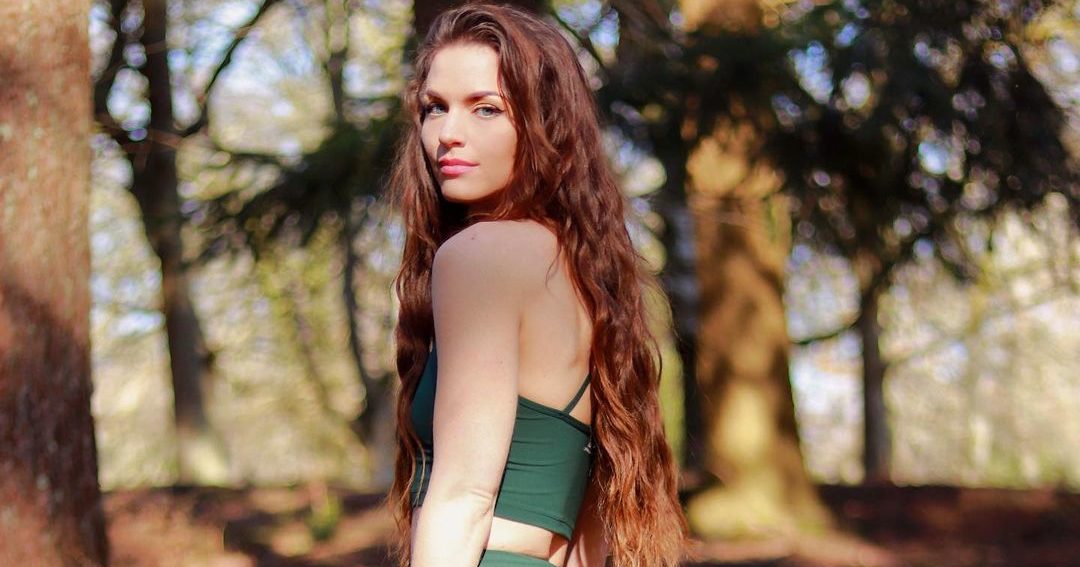
Can you tell us a little bit about how you got started as a fitness creator?
I used to be pretty unhealthy thanks to lack of exercise, eating badly and poor control of my diabetes. I was also extremely insecure, anxious, depressed and lonely. I guess initially out of loneliness I was just looking for ways to feel some sort of connection to others. So I started posting food that I cooked on Instagram. Those posts began to get support from others – complete strangers – who would comment and even follow me, which gave me a big boost and feeling of community which I’d not had. I then felt encouraged to post more about myself, and at this time I had just started getting into exercise, so I started sharing more about my fitness journey. The posts where I spoke about my health and fitness did so well and I started making genuine connections with others on a similar journey to me, and really it just went from there!
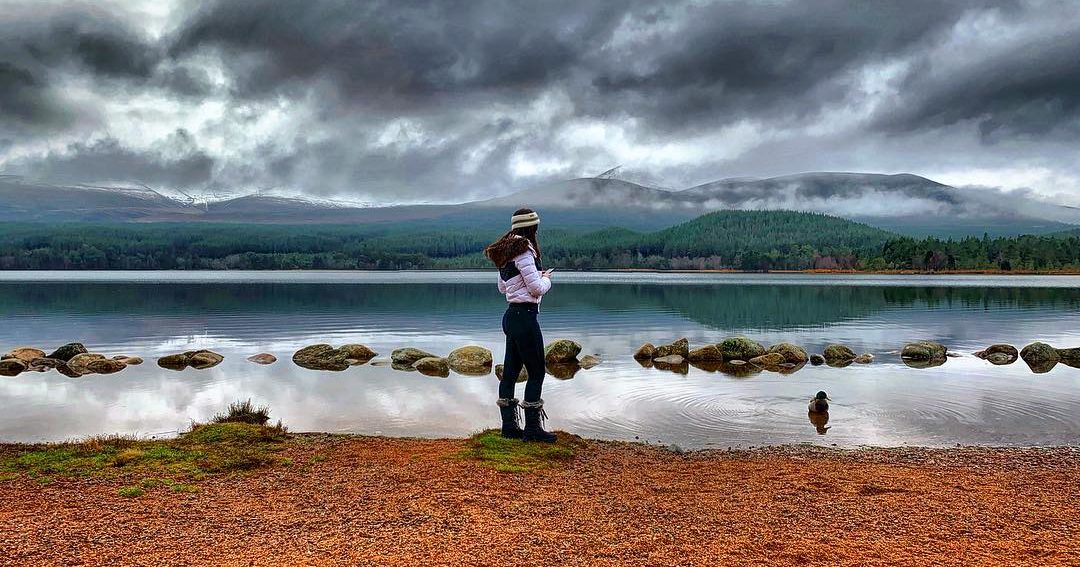
How has type-one diabetes affected your fitness journey?
There’s no doubt that it’s a tricky disease to deal with when it comes to fitness. Some days I’ll have done incredibly well with my nutrition and exercise, but if my blood sugar drops at any point then I’ve no choice but to eat something that otherwise I didn’t need. This is fine for most people, but when you’re following fairly strict macros it feels very disappointing to have to mess it up due to my own lack of control over my body.
Another problem is that blood sugar levels do sometimes dip as a result of exercise, and when it happens it makes continuing any activity very difficult! Usually it can be treated pretty swiftly by eating some carbs/sugary food or drink, but sometimes it does mean the activity can’t be completed, as it makes you feel very weak and strange at times. On the plus side, I do partly have my diabetes to thank for the reason I ever got into fitness and caring about my nutrition. When you eat better and exercise more, diabetes is generally a lot easier to control, so living a healthy lifestyle and having type one diabetes really do go hand in hand in many ways
Was the decision to become plant-based related to this?
My decision to become plant-based was definitely swayed by the health benefits I’d heard about, although both the planet and animals’ welfare were also hugely important to me too. But there definitely has been an improvement in my diabetes since going plant-based and becoming more conscious of what I’m putting in my body to nourish it.
Has being plant-based affected your progress or ‘results’?
Without a doubt, yes. It’s actually had a hugely positive impact on my progress, making it easy for me to stick to. Before being plant-based, my energy was so low and I’d sleep for hours more than I needed to because I’d be so tired all the time. I was convinced for years I was a lazy person or had something wrong with me. But honestly within days of cutting out meat and dairy I could wake up to my first morning alarm, get up with ease and have so much energy in the day that I hadn’t felt since I was really young. It was eye opening and 100% changed my life. I also no longer suffer with awful bloating I used to get after cheese and dairy, which was a horrible feeling to deal with every day. In terms of being able to build muscle despite not eating meat or eggs, it’s really not been an issue whatsoever. I’m in the best shape of my life despite only eating plant-based food which I think speaks for itself really.
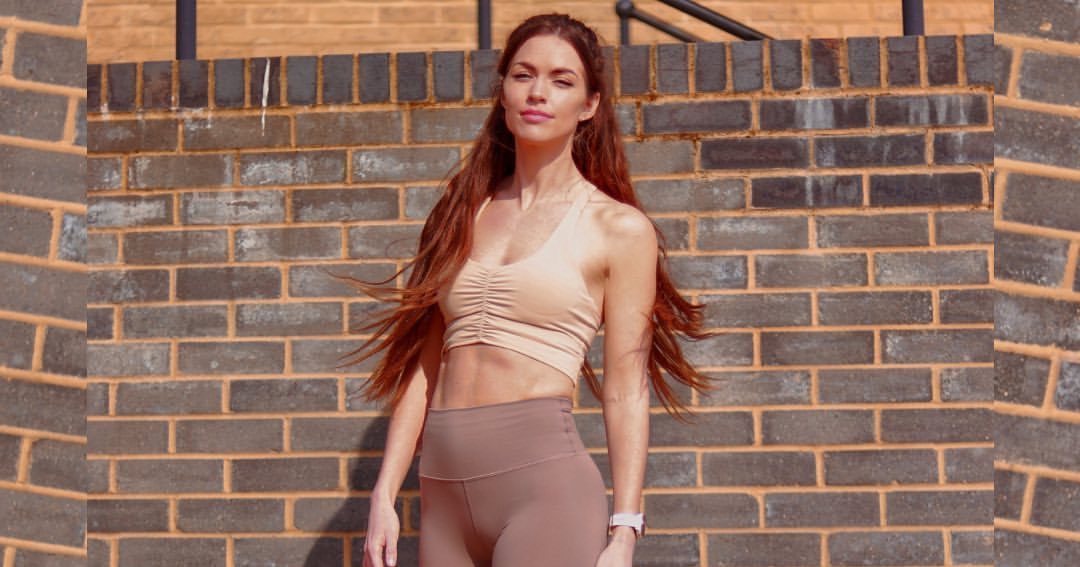
What challenges have you faced from having an online presence over the years?
I’ve faced the occasional nasty remark from trolls, and have sometimes felt judged by others, including friends, as being vain for posting photographs of myself, despite me generally trying to include messages to help other people alongside my photos. I’ve also faced remarks from people I’ve worked with in full time jobs outside of IG, and felt at times that I’m being monitored a little too much for comfort.
“Standards aren’t always achieved naturally, but will be labelled as natural.”
Do you think that social media perpetuates unrealistic fitness standards?
I wouldn’t necessarily say the fitness standards themselves are unrealistic – if they’ve been achieved naturally, then they are the result of real work and therefore are usually achievable unless you’re physically unable to exercise. But what social media does unfortunately perpetuate, is standards that aren’t always achieved naturally, but will be labelled as natural. I’ve seen plenty of influential people on social media talking about how to ‘grow’ certain parts of your body through exercise to look like theirs, when there’s no doubt in my mind that they didn’t achieve their growth through natural means. This has impacted me in some ways as it’s difficult to feel like you don’t look a way that is currently coveted, while trying to inspire others to live healthy, natural lifestyles and make them understand that what is coveted right now isn’t real or even healthy for many. To me, what’s important when it comes to fitness is feeling your best, feeling strong and looking after your body, but many of the social media body trends are focused solely on aesthetics which is quite frustrating and can be disheartening when you’re in the health and fitness world.
“Health and fitness isn’t about aesthetics for me.”
Your posts encourage your followers to be less critical of themselves, how do you find a balance between being motivating but compassionate?
The last thing I’d ever want to cause is for anyone to feel worse about themselves because of something I’ve said or shared, so to me it’s really important that I make it very clear that health and fitness isn’t about aesthetics for me. In my opinion, aesthetics should come as a result of what we do to make ourselves feel better, rather than being the initial aim. Throughout many times in my life I’ve felt so insecure about how I look, so I completely understand how it makes you feel when someone comes along and says ‘stop being lazy, it’s easy to get fit and look good’ – that was not the right approach for me, so it’s the last way I want to be towards others, so I try to be more gentle and understanding and relatable than that. I also still have my own insecurities. Despite feeling fit and healthy, I still have cellulite and things that I wish were different but will most likely always be there. Making sure you look after your body, while embracing those little flaws you might never change, is key, and that’s the message I try to spread.
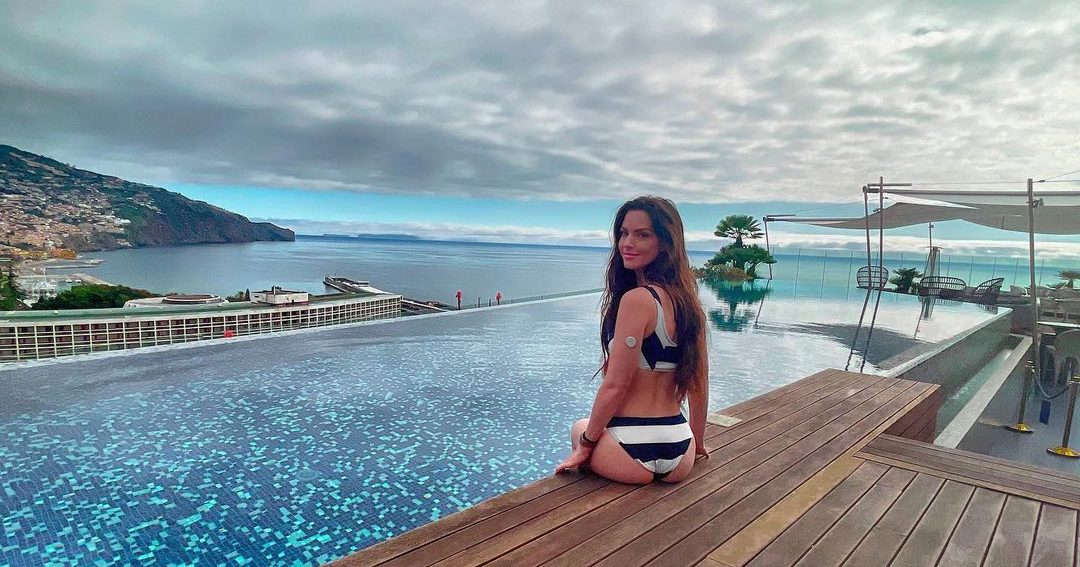
Authenticity seems to be an increasingly important component of having an online presence, but how do you separate your online identity from real-life?
That’s a difficult one, because to be authentic you do need to be your real self. By separating yourself out into two different personas (online identity vs real-life) I almost feel like that begins to hinder authenticity. For me personally, I just share anything that I think is relevant to my audience, or they might want to see, or may help others, including some of my bad bits (for example BTS shots where I look ridiculous, or how messy my activewear section of my wardrobe is, or talking about moments I feel low), but then I wouldn’t share things that I just think my audience wouldn’t really care about or that are way too personal. For example, I don’t tend to post much about my job outside of IG as it wouldn’t be of interest to my audience and is private to me. I guess I have a bucket of share-worthy subject areas, a bucket of non-share-worthy subject areas, and then the bits in between tend to depend on the situation!
“I think it’s a shame that we are punished for looking after our own mental health and taking a break now and then.”
What are the biggest pressures you have from being a fitness creator?
I’ve felt quite a lot of pressure to always be sharing ‘successful’ posts – ones that get lots of engagement, and when they don’t do well it definitely weighs on my mental health. It’s sometimes made me question what I’m doing and if I’m wasting my time. I also always feel pressure to post as much as possible. I’m aware that the Instagram algorithm ‘punishes’ users who don’t post regularly enough, but sometimes I’ve just wanted to take a break from sharing things. I think it’s a shame that we are punished for looking after our own mental health and taking a break now and then. On the plus side, the benefits do definitely outweigh the negatives for me. For most of my life I bottled up my creativity and focused mostly on academic subjects and career-paths, but the freedom of expression that being a creator gives you is incomparable and so exciting. The fact that you can work from pretty much anywhere, and even your hobbies can intertwine with your IG work, is exhilarating. But the best thing, by far, is when I receive messages from anyone telling me that I’ve helped them, especially when it’s something they’ve struggled with previously. Knowing that by sharing what I do I’ve helped someone feel better in any way is the most rewarding feeling I’ve ever had from any kind of work, and always will be.
Your account is motivating and full of positivity, but do you ever get days when you don’t feel so motivated?
Absolutely! I don’t think anyone is always motivated! On days like those I’ll take one of two approaches – either I’ll write the day off and take it as a self care day (this is my usual preference), or if it’s really important that I stick to it, I’ll find a new way to motivate myself, for example setting myself up with a reward if I manage to get what I needed to do done – this actually makes it kind of fun! If I do take a self care day (or a few days), the most important thing is that I get back on track within a reasonable amount of time as otherwise my habits will change. Rest however is good, and necessary, and at times that may be the reason we’re lacking motivation, so it’s important to allow it at times.
“The last thing I would want to do is ‘influence’ anyone into buying something that doesn’t make sense for them.”
You call yourself a fitness creator, how come you went for this term rather than influencer?
I feel like the term influencer gives off an implied air of superiority, which doesn’t sit well with me. I don’t feel like my opinions are more valid than other peoples’, and just because I’m using or recommending a product doesn’t mean I think people should or will go and buy it just because I say so. The last thing I would want to do is ‘influence’ anyone into buying something that doesn’t make sense for them. I don’t want to change people’s behaviour like the word influencer implies, I want to share things I believe in that might help others, and big-up brands that are doing good things for the world. If someone decides to buy into a brand I share, it’s the result of a great brand/product, not me. By being selective and picking the right brands to work with, I don’t believe I need to influence anyone at all. Instead, I create digital content for brands, and expose the brands to my audience using that digital content – hence the term digital creator made much more sense for me!
“By being selective and picking the right brands to work with, I don’t believe I need to influence anyone at all.”
How did you come across Matchmade?
I was in a community group with other content creators and one of them suggested the platform as a good one for paid work. I guess they inadvertently influenced me to sign up, haha – but this goes back to my last answer. They chose to recommend a great platform (there are a lot of awful ones out there) and it was because the platform seemed great I decided to sign up – not just because I was told to!
How has your experience been with us?
I’ve had a great experience so far. It’s refreshing to find a platform with campaigns where creators can expect to be paid, rather than being ‘paid’ in gifts. Gifting is something I will always avoid as it’s simply not a sustainable way of working, so to find a platform that also avoids this and actually values creators for the work we put in is great. Additionally, the communications I’ve had with the Matchmade team relating to campaigns have always been quick, clear and friendly. Lastly, I’ve had lots of experiences with other platforms where half of the info I need is in emails and the other half is on a platform, so it’s tricky to keep things organised, so it’s been really useful having all the information you might need in one place like it is on the site, including all communications!
Sign up to our platform if you’re interested in monetising your content and finding relevant sponsorship opportunities.
You can learn more about how to approach sponsorships and build meaningful relationships with advertisers in our guide.





